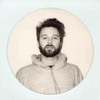This article originally appeared on VICE France.In 2016, French photographer Aurélien Gillier followed his girlfriend to Burkina Faso while she was working on a research project. On the evening of the 15th of January, he was out with some friends in a small bar in Ouidi, a neighbourhood in Ouagadougou, Burkina Faso’s capital. Just five kilometres away, terrorists from Al-Qaeda in the Islamic Maghreb (AQIM) attacked a number of tourist hot-spots, killing 28 and injuring 56.
Advertisement
When he heard of the attack, Gillier’s instinct was to rush to the scene and take pictures. But before he could get out of the bar, a man sporting a cowboy hat and a sheriff star on his shirt barged in. Don Carlos, better known as the “Sheriff of Ouidi”, is a self-proclaimed non-violent sheriff and cowboy approaching his sixties, who rides on horseback through the streets of Ouagadougou. The Sheriff of Ouidi doesn’t actually fight crime, but claims he was awarded the star from none other than the US ambassador to Burkina Faso himself.
Don Carlos. Ouagadougou, Burkina Faso, 2016.
His fame preceded him – Gillier had heard of Don Carlos before even arriving in Ouagadougou. "I knew that one day or another I was going to run into him," he said. He took a couple of pictures that night and moved on, thinking their paths wouldn’t cross again. But a year later, they did – and this time, Gillier didn’t miss the opportunity to document it. Don Carlos is not the only self-styled cowboy riding on Ouagadougou’s streets – horses are a big part of Burkina Faso’s cultural identity. This relationship dates back to the country’s origin story in the Middle Ages. According to oral tradition, the legendary African princess Yennenga was once a horse-riding warrior so revered that her father refused to let her get married. One day, the princess escaped her father’s custody and had a son with an elephant hunter of a neighbouring tribe.
Advertisement
Nicknamed “the Stallion”, Yennenga’s son went on to found the Mossi kingdoms, a number of independent kingdoms established on Burkina Faso’s territory, until the French colonised the area in 1896. The kingdoms were once very powerful in West Africa, and horses were a vital part of their military and culture, signalling status and wealth.Today, the Mossi are still the largest ethnic group in the small West African country. Although colonialism brought an end to the kingdoms, a descendant of the throne exists to this day. Naba Baongo II is the current Mogho Naba, or King of the Mossi. His role is mainly ceremonial – for instance, he heads a procession of hundreds of horses in the capital every Friday, symbolising his ministers dissuading him from going to war. The exact origin of the war has been lost over the centuries.Horses are still beloved in Burkina Faso, and feature on the country’s coat of arms and in celebrations like weddings. Horse racing is one of the country’s most popular sports – every Sunday, the capital city stops to watch the races at 3PM. Ali Faso, a celebrity stable owner, takes care of the horses of wealthy people in the area, and often takes young people under his wing. "With a little luck, some become coaches,” Gillier said. Many other horse enthusiasts end up looking after cattle, on horseback, on the pastures surrounding the Tanghin 2 Dam in the northern part of the city.
Advertisement
Gillier has spent the last couple of years documenting these stories for his ongoing and award-winning series Cowboys Are Always Black. Unfortunately, he hasn’t been able to visit Burkina Faso for a while due to the pandemic. But next time, he intends to bring a screenwriter friend with him to produce a movie about Don Carlo’s life, treading the line between fiction and reality – just like the Sheriff of Ouidi himself.Scroll down to see more pictures from the series.
Ouagadougou, Burkina Faso, 2016.
Don Carlos. Ouagadougou, Burkina Faso, 2016.
Ouagadougou, Burkina Faso, 2018.
Ouagadougou, Burkina Faso, 2018.
Ouagadougou, Burkina Faso, 2016.
Ouagadougou, Burkina Faso, 2016.
